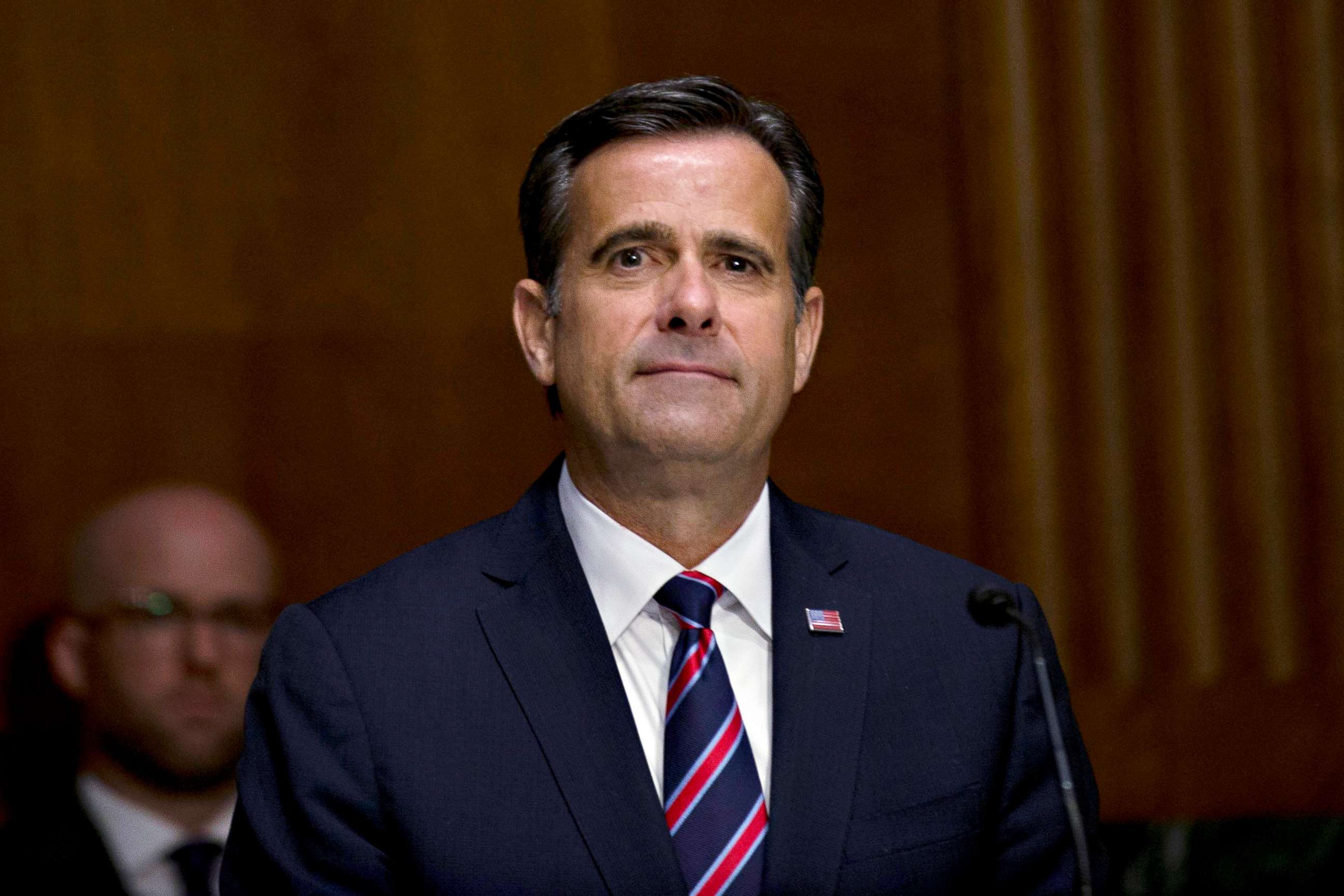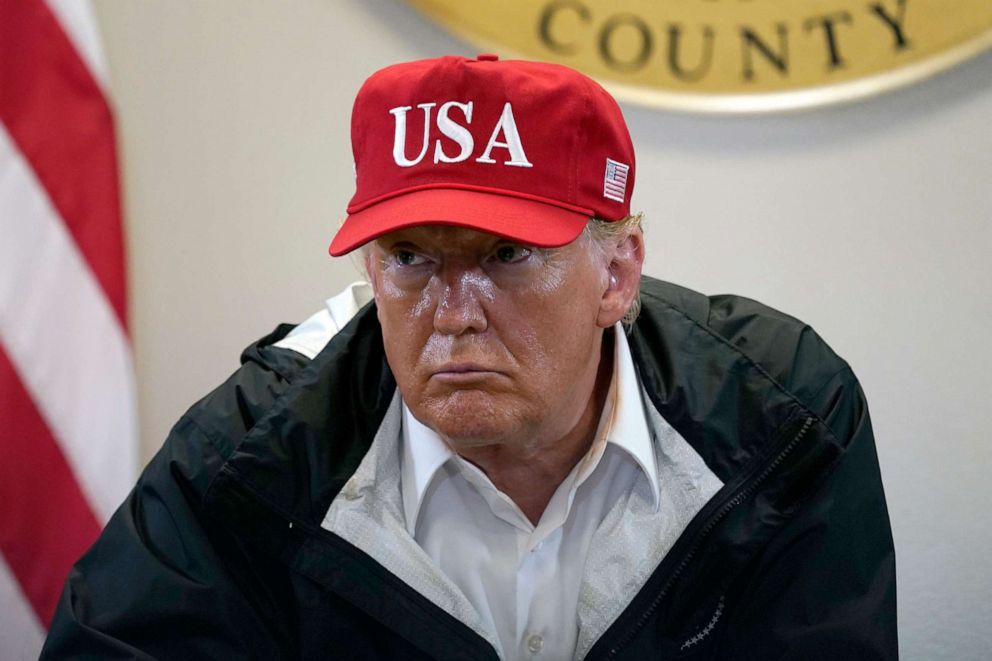Citing concern over leaks, intel community will cease in-person election security briefings to Congress
The development was met with swift and stern backlash from congressional Dems.
With only two months until ballots are tallied, the intelligence community informed lawmakers that it would cease in-person election security briefings, citing concern over "unauthorized disclosures of sensitive information."
"For clarity and to protect sensitive intelligence from unauthorized disclosures, we will primarily do that through written finished intelligence products," an Office of the Director of National Intelligence official told ABC News.
Newly minted Director of National Intelligence John Ratcliffe informed a bipartisan group of congressional leadership and intelligence committee chairmen on Saturday that "this approach helps ensure, to the maximum extent possible, that the information ODNI provides the Congress … is not misunderstood nor politicized."
"In the last few months alone, the [intelligence community] … have provided Congress with more than a dozen briefings," Ratcliffe continued. "While many of these engagements and products have been successful and productive, others have been less so."

The development was met with swift and stern backlash from congressional Democrats.
"This is a shocking abdication of its lawful responsibility to keep the Congress currently informed, and a betrayal of the public's right to know how foreign powers are trying to subvert our democracy," wrote House Speaker Nancy Pelosi, D-Calif., and Chairman of the House Intelligence Committee Rep. Adam Schiff, D-Calif., in a statement reacting to Ratcliffe's letter.
In their statement, Schiff and Pelosi said the Office of the Director of National Intelligence had previously planned to brief the House and Senate intelligence Committees and full House in mid-September, before abruptly canceling those plans.
President Donald Trump echoed that the briefings were being altered due to leaks.
"Director Ratcliffe brought information into the committee, and the information leaked," Trump told reporters Saturday following a tour of damage from Hurricane Laura in Texas. "Whether it was 'Shifty Schiff' or somebody else, they leaked the information before it gets in. And what's even worse, they leaked the wrong information. And he got tired of it. So, he wants to do it in a different forum."
Earlier this month, a senior ODNI official confirmed that malign foreign actors, including Russia, China and Iran "continue to use covert and overt influence measures in their attempts to sway U.S. voters' preferences and perspectives, shift U.S. policies, increase discord in the United States, and undermine the American people's confidence in our democratic process."
According to CNN, which was first to report the news, "other agencies supporting election security, including the Department of Justice, Department of Defense and Department of Homeland Security, intend to continue briefing Congress."
Sen. Marco Rubio, R-Fla., acting chairman of the Senate Select Committee on Intelligence, supported Ratcliffe's move and called divulging information "not only an abuse" but a "serious federal crime with potentially severe consequences on our national security."
"This situation we now face is due, in no small part, to the willingness of some to commit federal crimes for the purpose of advancing their electoral aims," Rubio continued. "Yet, this grotesque criminal misconduct does not release the intelligence community from fulfilling its legal requirements to respond to Congressional oversight committees and to keep members of Congress fully informed of relevant information on a timely basis."
Rubio said briefings would continue on all oversight topics, including on election security, just not apparently in person.

Even so, John Cohen, a former undersecretary for intelligence at the Department of Homeland Security and an ABC News contributor, said that "by refusing to brief Congress on a significant threat facing this country, administration officials are placing this country at grave risk."
"The House and Senate intelligence committees have a long history of receiving and protecting our nation's most sensitive secrets," Cohen continued. "We've heard repeatedly over the past several years of the serious threat facing our nation from hostile foreign actors seeking to influence the outcome of the 2020 election."
Senate Minority Leader Charles Schumer, D-N.Y., slammed the decision in a statement.
"DNI Ratcliffe has made clear he's in the job only to protect Trump from democracy, not democracy from Trump," he said. "Our intelligence officials have said there's an active, ongoing assault on our democratic process from Russia. President Trump is simply using John Ratcliffe to hide the ugly truth from the American people -- that the President is again receiving the help of the Kremlin."
In concluding their statement, Pelosi and Schiff said they "expect the Administration and Intelligence Community to keep us fully and accurately informed, and resume the briefings."
"If they are unwilling to," the lawmakers warned, "we will consider the full range of tools available to the House to compel compliance."
Former Vice President Joe Biden's campaign reacted to the ODNI's decision to cease in-person briefings on election security in a statement on Saturday, with campaign spokesman Andrew Bates calling the announcement "deeply alarming," given Trump's "unprecedented welcoming of these assaults on our democracy for his own gain," by countries like Russia, China and Ukraine.
The Biden campaign also called on the decision to be reversed "immediately."
ABC News' Elizabeth Thomas, Ben Siegel, Trish Turner and John Verhovek contributed to this report.




